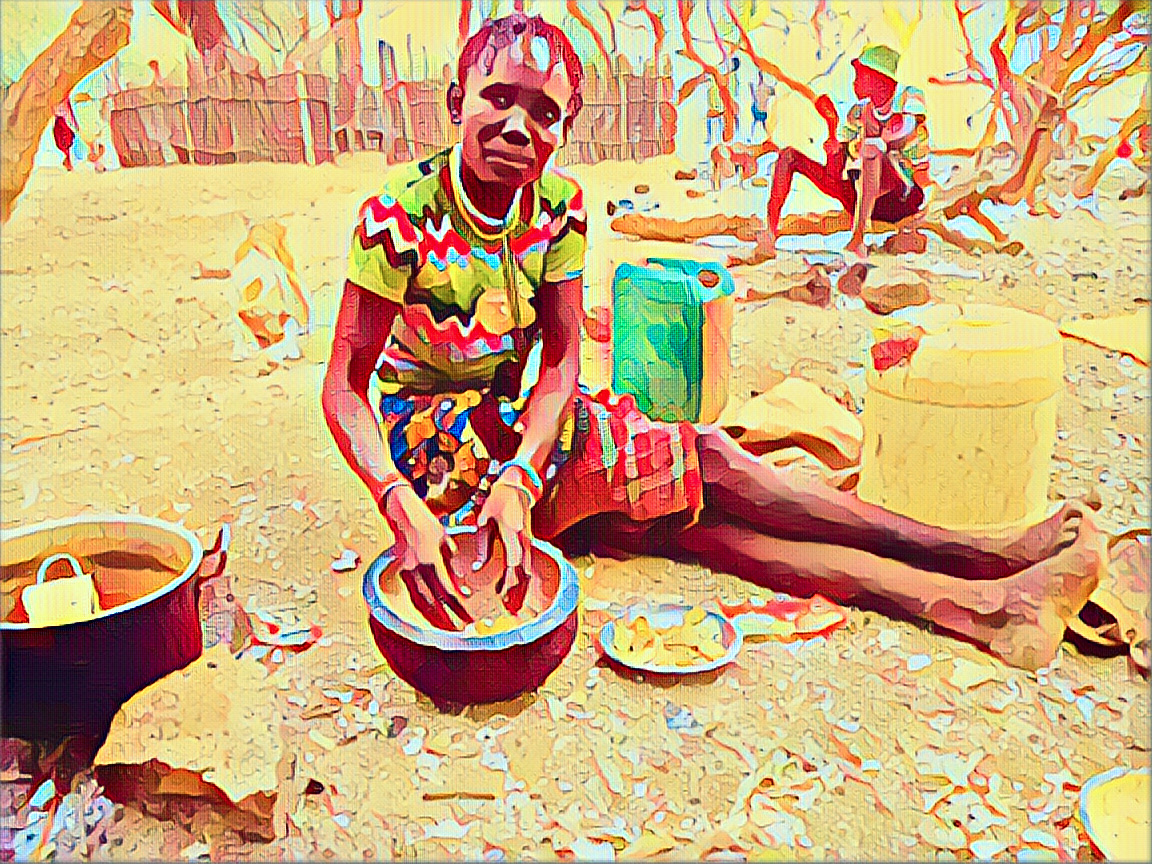Zimbabwe faces one of its worst droughts in years, leading to severe food insecurity. President Emmerson Mnangagwa has announced that the country needs over $2 billion in food aid to address the crisis.
Many rural families are coping by skipping meals. The Famine Early Warning Systems Network (FewsNet) reported that in July, most households adopted consumption-based coping measures, such as skipping meals, reducing meal portions, or prioritizing feeding children and the ill.
“Households in parts of the country that received grain from the government rely on this food assistance as their main source of food,” FewsNet noted. The government plans to resume its school feeding program in rural and urban areas to address food shortages, malnutrition, and school dropouts.
The price of mealie-meal has skyrocketed, making it unaffordable for many low-income households. “Market supplies of staple grain remained very low, with stocks unavailable across most markets,” FewsNet said. “Current prices of staple grain are equal to or higher than prices during the peak of the lean season. Prices range between $9 and $12 per 17.5 kg bucket of maize, more than double the usual $3-$5 in July following an average harvest.”
Maize meal prices have also increased significantly. “Prices are between 20-25% higher than normal, retailing for $5.50-$8 per 10 kg bag, compared to July 2023 when prices ranged between $4.50 and $6.50,” the report stated. “Prices of other basic food commodities remain relatively stable but higher than what most low-income households can afford.”
To mitigate the crisis, the government has announced a $1.6 billion agricultural season crop input assistance plan for 2024/25. This plan will be financed by the government (40%) and the private sector (60%) to support engagement in the next agricultural season and take advantage of the forecast average to above-average rainfall.
President Mnangagwa emphasized the urgency of international aid to help Zimbabwe through this crisis. The drought has severely impacted agricultural output, leaving many families without enough food. The government’s plan aims to ensure that the next planting season is successful and that food supplies are stabilized.
In rural areas, the situation is dire. Many families have resorted to drastic measures to survive. The government’s food aid distribution has been a lifeline for some, but more is needed. The school feeding program, set to resume, aims to provide relief to children who are most affected by the food shortages.
Market conditions have exacerbated the crisis. The high prices of staple grains and maize meal are beyond the reach of many. This inflation has put additional strain on families already struggling to cope with the drought.
The international community’s response will be crucial in addressing Zimbabwe’s food insecurity. The government’s efforts to secure food aid and support for the next agricultural season are steps in the right direction. However, sustained assistance will be necessary to ensure long-term stability and food security.
Source: Newsday


